
There’s a longstanding stigma that cosmetic surgery is all about vanity and perfectionism, often overlooking the potential mental health benefits of working with a skilled cosmetic surgeon. While plastic surgery is not a fix for psychological matters, some research—like a 2022 Iranian study—has shown that in some cases, cosmetic surgery can improve self-esteem and body image. That’s most likely your surgeon’s ultimate goal—not perfection.
And, whether you encounter a plastic surgeon at a party or your first office consult, try not to feel self-conscious that they’re checking your appearance for things they’d love to fix. “Although people often assume we do, aesthetic surgeons don’t look at the physical aspects of people to determine what they ‘need,'” says Sergio Alvarez, MD, a board-certified plastic surgeon and COO of Mia Aesthetics practicing in Miami, FL and Austin, TX. “It’s more about how the patient feels about themselves.”
Cosmetic surgery is about feeling confident with and within your body and your overall general happiness with yourself, he adds—and these are the first things cosmetic surgeons notice about you to help you get there.
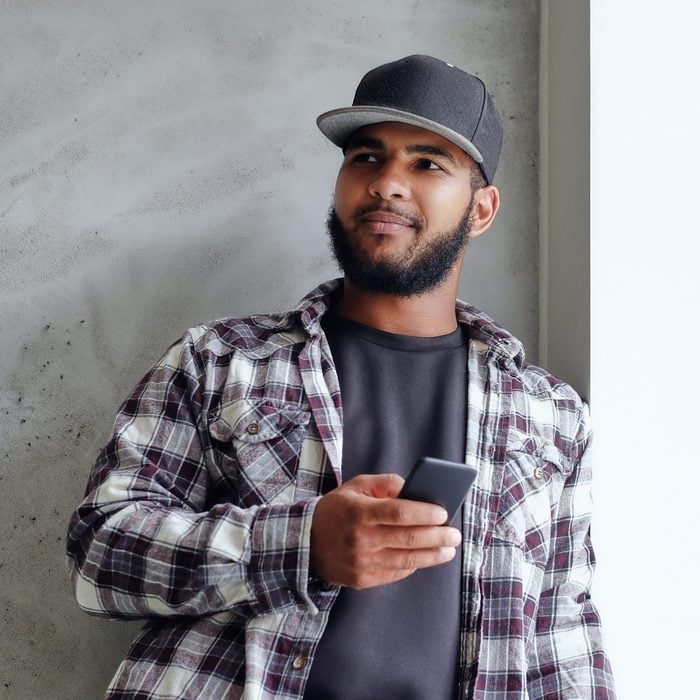
1. What you’re hiding
People will often subconsciously hide the features they’re not confident about, explains Anil Shah, MD, a board-certified plastic surgeon with Aesthetic Skin Chicago. “For example, if someone doesn’t like their nose, they’ll often wear glasses; if they have a weaker jawline, sometimes they grow a beard; or if they are losing their hair, they’ll wear a hat,” he says. “The goal with plastic surgery is to make those features something they want to display rather than conceal.”

2. Your mood and demeanor
“When I first walk in the door [to meet a patient], I get a sense of their mood,” says Nadir Qazi, MD, a board-certified cosmetic dermatologist and plastic surgeon in California. “Is [cosmetic surgery] something they’re excited to do? Or is this something they feel they have to do, being forced into for whatever reason?”
Rather than searching for “flaws” or ways to make improvements, Dr. Alvarez adds that a good aesthetic surgeon observes how patients stand or sit, how they present themselves, how they dress, and what parts of their body they cover. “We look for these and other clues that tell us what parts of their bodies make patients uncomfortable and tell us how they feel.”

3. What you say
“It’s also important as an aesthetic surgeon to have open, candid conversations with patients and tease out these insecurities,” says Dr. Alvarez. “It’s our job to make sure our patients are well informed on the options they have in aesthetics, and what we can and can’t do for them.”

4. Signs of body dysmorphia
Body dysmorphia is a psychological condition that makes people unhappy with their bodies even when there is nothing abnormal or different about them, Dr. Alvarez explains. “Without adequate counseling, these patients will never benefit from aesthetic surgeries, and providing them can do more harm than good.”
Bethenny Frankel on Beauty & Body Image: “I Did Not Realize People Are Using Filters”
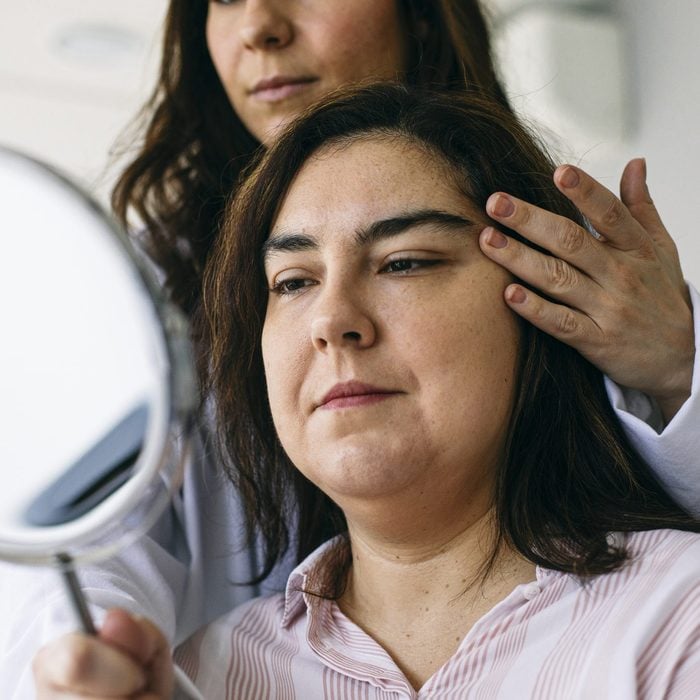
5. Your natural features
The goal of most cosmetic surgeons is to help a patient enhance their physical features and restore areas affected by things like aging, says Dr. Qazi. “But there are some [patients] who make suggestions … and it’s just not going to fit their body type—it’s not going to fit their face or aesthetic,” Dr. Alvarez says.
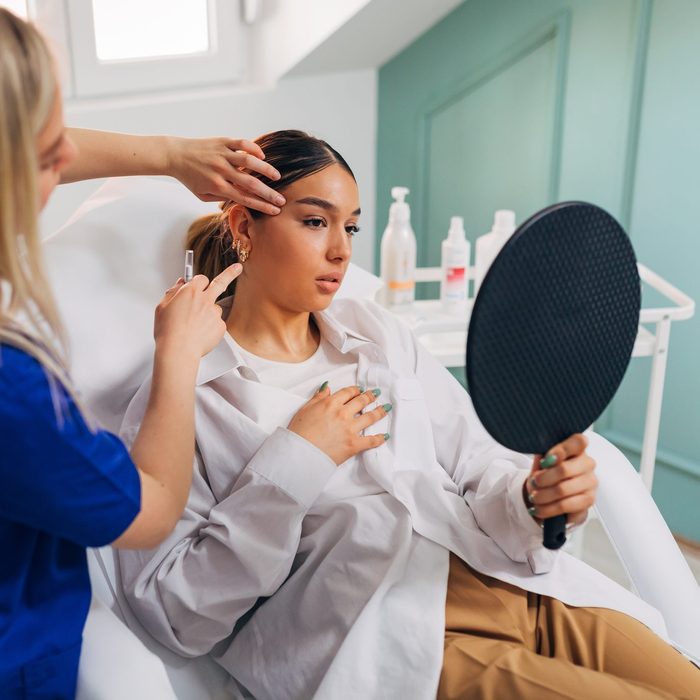
6. Your age
Early signs of aging on our skin largely have to do with collagen loss, says Ariel Ostad, MD, a cosmetic dermatologist and surgeon in New York. “We begin to lose collagen in our late twenties and early thirties, and we lose one percent every year.”
In Dr. Ostad’s practice, his eye tends to first assess for signs of this collagen loss that can be treated with simpler approaches like Botox or fillers, such as forehead creases, crow’s feet, frown lines, and “elevens” between the brows.

7. If you’re very animated
Aging isn’t the only cause of fine lines—they can form if you’re just a naturally expressive person. “We have people in their early twenties with severe frown lines because they’re stressed, focused during school, or always on their phone,” Dr. Ostad says. “Or some young people could really benefit from Botox because they’re very expressive naturally and have strong animated lines.”

8. Your skin tone
One of the first things that stands out to Dr. Ostad is skin texture, tone, and color. “Many individuals present with dyschromia, a term for blemishes, brown spots, sunspots, and really fine lines that are not addressed with Botox and filler.” He says these people generally benefit from some sort of laser treatment. “There are a variety of lasers depending on the patient’s skin type, whether they’re really fair-skinned, blond, blue-eyed, versus someone who could be Mediterranean, Asian, or African American.”
Skin-Tightening Treatments in 2023 That Can Take Years Off Your Face

9. Your phone habits
We lose collagen in our neck as we age, too, which can result in crepey skin and horizontal creases on the neck, from the chin to our collarbone. Now that we’re on our phones so often, with the chin down close to the chest, these bands can form earlier, Dr. Ostad says. “As people age, those lines just tend to get deeper,” he explains.
There are many treatment options based on the severity of these lines, like Botox, fillers, or procedures like PRP, an injection of platelet-rich plasma that stimulates collagen production.
10 Unexpected Beauty Treatments You Can Get On Your Lunch Hour
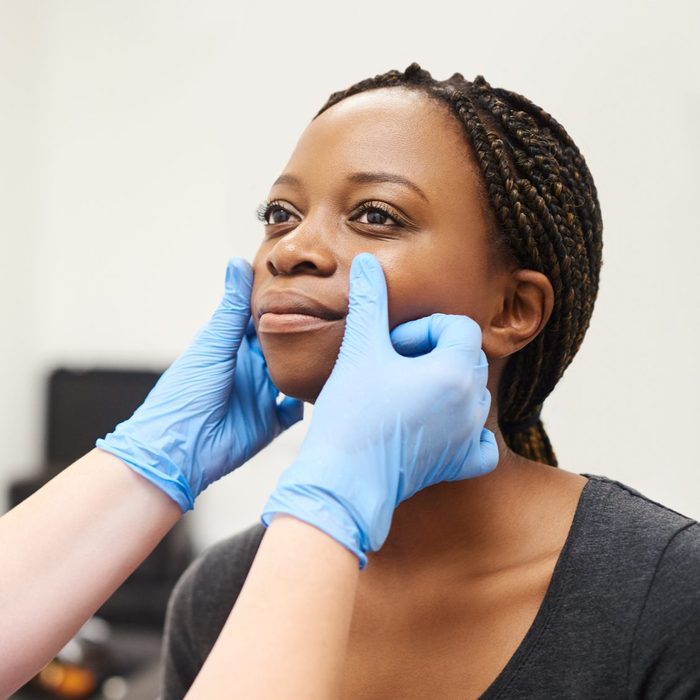
10. Your cheeks
Dr. Ostad says he’ll see patients who want to target signs of aging like laugh lines, marionette lines, or jowls. “These are actually symptoms of a loss of support in the outer cheeks.” As we age, we lose fatty tissue, muscle tone, and the support of the deep collagen layer in our cheeks that holds everything up. “But one common thing that makes a profound difference in helping the jawline is actually injecting fillers into the cheekbones,” he says. “By injecting fillers deep into near the bone, you can actually help to really lift up the jawline.”
5 Ways Menopause Changes Your Skin (with Solutions!), from a Cosmetic Surgeon
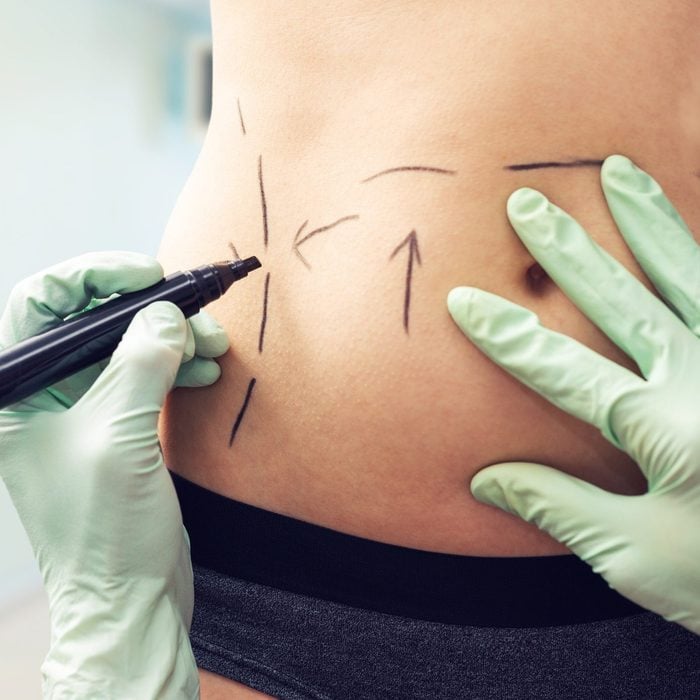
11. Your fitness
There’s a big misconception about liposuction that it’s a weight-loss procedure, Dr. Qazi explains. “It’s really just for stubborn areas of fat.” The best candidates for liposuction will be at or nearing their ideal weight before surgery, maintaining a good exercise and nutrition program.
Liposuction Before and After Photos: What You Can Really Expect, Say Surgeons
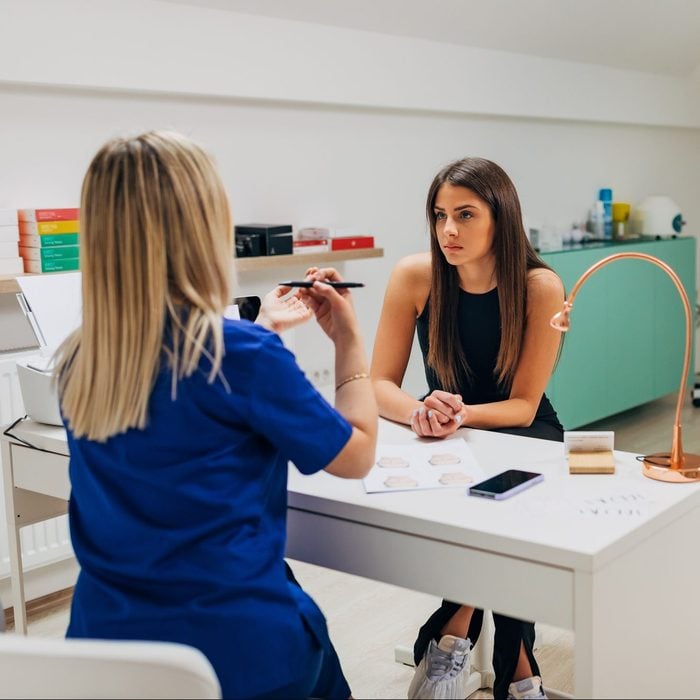
12. Your posture
Poor posture can result from many types of habits or physical conditions. A surgeon will probably observe whether it’s due to very large breasts or breast implants, Dr. Qazi says. “I’d essentially explain that by doing a [breast reduction] procedure, it can help with that back pain and slouching, for instance.”
Stay well with The Healthy @Reader’s Digest newsletter and follow The Healthy on Facebook, Instagram, and Twitter. Keep reading:
